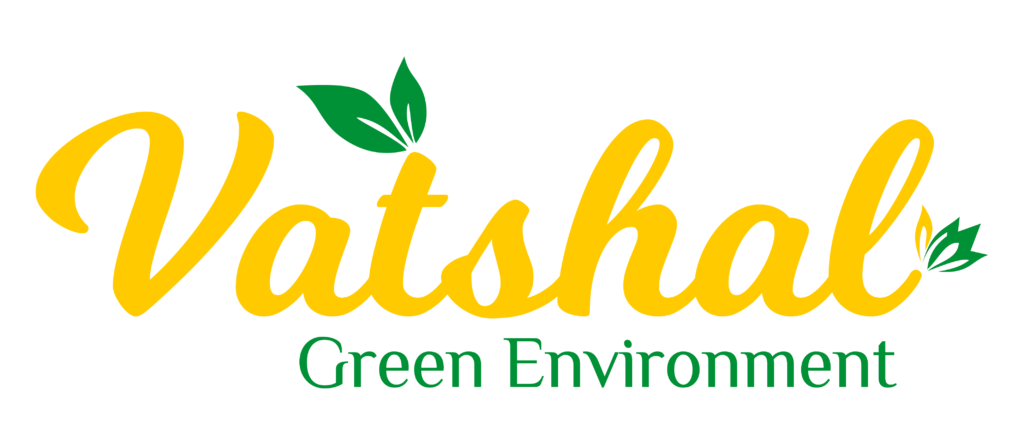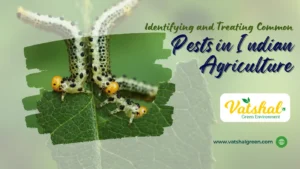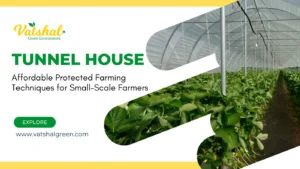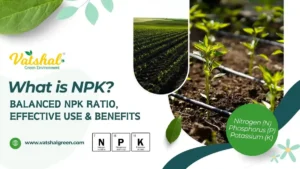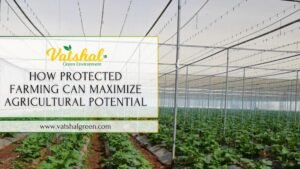In the modern era of agriculture, the quest for higher yields, sustainable practices, and efficient resource management has led to the emergence of innovative farming techniques. Among these, protected farming stands out as a game-changer, allowing farmers to enhance their output while ensuring the health of the environment. This blog explores the benefits of protected farming, particularly through the use of Shade Net houses and Polyhouses, and how Vatsal Green Environment can help you maximize your agricultural potential.
Understanding Protected Farming
Protected farming refers to the cultivation of crops in a controlled environment that shields them from adverse weather conditions, pests, and diseases. This approach encompasses a variety of structures, including greenhouses, shade nets, and other protective covers. By implementing these systems, farmers can achieve greater yield per acre and ensure the consistent quality of their produce.
Benefits of Protected Farming
- Higher Yields: Protected farming allows for intensive cropping, leading to higher output per acre. The controlled conditions help optimize growth, allowing farmers to produce more food on less land.
- Water Conservation: With traditional farming methods, water loss through evaporation and runoff can be significant. Protected farming minimizes water waste by creating a microclimate that retains moisture, ultimately leading to more efficient water use.
- Pest and Disease Management: By creating barriers against pests and diseases, protected farming significantly reduces the need for chemical pesticides. This not only lowers production costs but also contributes to healthier produce.
- Extended Growing Seasons: With the ability to control temperature and humidity, farmers can extend their growing seasons. This allows for the cultivation of off-season crops, increasing profitability.
- Quality Control: Protected environments lead to uniform growth conditions, which enhance the quality of crops. This is particularly important for high-value fruits and vegetables, where appearance and taste can determine marketability.
- Sustainable Practices: Protected farming aligns with sustainable agriculture by reducing the reliance on chemicals, conserving water, and maximizing land use. This not only benefits farmers but also contributes to overall environmental health.
Modern Technologies in Protected Farming
To enhance the effectiveness of protected farming, several modern technologies can be integrated into operations:
- Automated Climate Control Systems: These systems monitor and adjust temperature, humidity, and ventilation to create optimal growing conditions for plants. This automation can significantly reduce labor costs and human error.
- Smart Irrigation Systems: Utilizing technologies like drip irrigation and moisture sensors ensures that plants receive the exact amount of water they need, minimizing waste and maximizing growth.
- Hydroponics and Aeroponics: These soil-less farming techniques can be effectively used within protected structures. They allow for faster plant growth and more efficient use of nutrients and water.
- LED Grow Lights: By using energy-efficient LED lights, farmers can supplement natural sunlight, particularly in regions with limited light during certain seasons. This ensures that plants receive adequate light for photosynthesis.
The Role of Vatsal Green Environment
At Vatsal Green Environment, we specialize in providing innovative solutions for protected farming. Our Shade Net houses and Polyhouses are designed to cater to various agricultural needs, ensuring that farmers can achieve the highest possible yields while minimizing environmental impact.
- Customizable Solutions: We offer tailored solutions based on the specific requirements of different crops and climates. This means you can select the best structure for your farming needs.
- Expert Guidance: Our team of experts is dedicated to assisting farmers at every stage, from planning and installation to ongoing support and maintenance. We believe in empowering our clients with the knowledge and tools they need to succeed.
- Affordable and Profitable: Our aim is to make protected farming accessible to everyone. By investing in our systems, farmers can expect a significant return on investment through increased productivity and reduced input costs.
Conclusion
The future of agriculture lies in embracing innovative practices like protected farming. By adopting methods such as Shade Net houses and Polyhouses, farmers can not only increase their output yields but also contribute to sustainable agricultural practices. At Vatsal Green Environment, we are committed to supporting farmers in this transformative journey.
For more information about our services, feel free to reach out to us.
